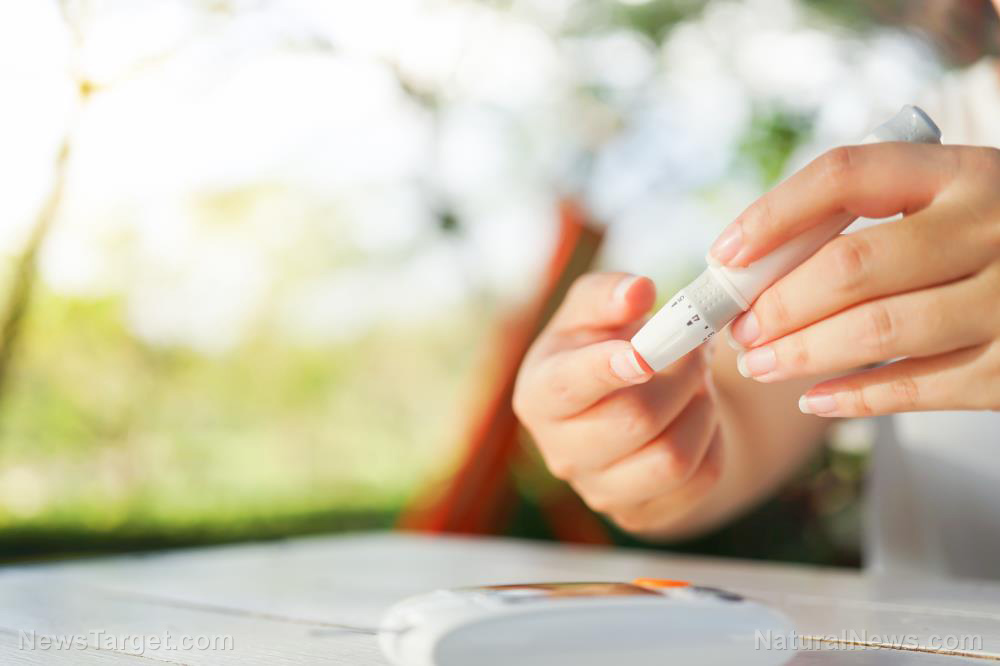
Advertisement
High blood sugar levels are a hallmark of diabetes mellitus, more commonly known as just diabetes. In people who have this disease, either their pancreas doesn’t make enough insulin, the hormone that controls blood sugar levels, or their cells are unable to respond to insulin and use it. If sugar can’t get into your cells, it stays in your bloodstream, resulting in a buildup of extra sugar.
If left unchecked, diabetes can lead to serious consequences, damaging key organs like your heart and kidneys. It can even damage both tiny and large blood vessels and cause nerve and eye damage.
Fortunately, there are many ways to control your blood sugar levels and bring them down to the normal range. By staying on top of your blood sugar levels, you can lower your risk of developing diabetes.
Here are 14 ways to lower your blood sugar naturally: (h/t to Healthline.com)
1. Exercise regularly
Exercise helps improve blood sugar levels by increasing cells’ sensitivity to insulin, allowing them to use sugar as energy. When you exercise, your cells take the stored form of sugar and use it for energy so that the next time you eat carbohydrates, there’s a place to put it.
2. Manage your carbohydrate intake
Keep an eye on your intake of carbohydrates since they can cause your blood sugar levels to fluctuate. How many carbohydrates you eat per meal will depend on your weight, your age and how often you exercise.
A good starting point for people with diabetes is to limit their carbohydrate intake to 200 to 245 grams (g) per day. Carbohydrates should constitute roughly half of your daily calories.
3. Increase your soluble fiber intake
Soluble fiber helps improve blood sugar levels by slowing the absorption of sugar in your gut. Soluble fiber can be found in black beans, Brussels sprouts, sweet potatoes, turnips, figs, carrots, oats and sunflower seeds.
4. Stay hydrated
Staying hydrated is a good way to keep your blood sugar levels within the healthy range. The idea is that water helps your kidneys flush out excess sugar through urine. Water also dilutes the amount of sugar in the blood.
5. Practice good portion control
Avoid eating large meals. Instead, feed your body throughout the day and implement portion control. This can prevent your blood sugar levels from fluctuating after eating. You can start by measuring and weighing portions, using smaller plates and eating slowly.
6. Eat foods with a low glycemic index
The glycemic index (GI) is a value assigned to foods based on how quickly they cause an increase in your blood sugar levels. Low GI foods cause blood sugar levels to increase more slowly than high GI foods. For better blood sugar control, eat more low GI foods, such as whole grains, beans and non-starchy vegetables.
7. Learn to manage stress
Hormones like glucagon and cortisol are secreted when you’re stressed, causing your blood sugar levels to rise. Insulin levels also fall and more glucose is released from the liver, which ends up in the bloodstream. Therefore, it’s important to get a handle on stress. Try meditating, doing yoga or going out for a walk.
8. Get enough sleep
When you lack sleep, your body is more likely to release cortisol, which can negatively affect blood sugar. Lack of sleep also increases your appetite, making you more likely to overeat, which can lead to blood sugar spikes. If you have sleep troubles, try to avoid using cell phones or watching television at least half an hour before bed.
9. Increase your chromium and magnesium intakes
Past studies have shown a link between diabetes and deficiencies in certain micronutrients, such as chromium and magnesium. Chromium plays a role in carbohydrate and fat metabolism and blood sugar control. Chromium-rich foods include lean meats, whole grains, fruits, vegetables and nuts.
Meanwhile, lack of magnesium has been linked to a higher risk of diabetes. Magnesium-rich foods include green leafy vegetables, fatty fish, whole grains, dark chocolate and bananas.
10. Take apple cider vinegar
Previous studies have linked vinegar, particularly apple cider vinegar (ACV) to blood sugar control. It has even been shown to improve cells’ insulin response. An easy way to take ACV is to dilute a few tablespoons of it in water and drink it before meals or before bedtime. You can also incorporate ACV into your go-to recipes.
11. Take berberine
Berberine is a naturally occurring chemical found in numerous plants, including goldenseal, barberry and tree turmeric. It helps control blood sugar levels by increasing insulin sensitivity. Berberine is available as a supplement, which should be taken with or shortly after a meal.
12. Take cinnamon
Sweet, woody cinnamon helps control blood sugar levels by slowing the breakdown of carbohydrates in the gut. To incorporate cinnamon into your daily routine, sprinkle it on desserts and pastries, add it to teas and smoothies or stir it into cookie, muffin and cupcake batters.
13. Eat fenugreek seeds
Fenugreek seeds are an excellent source of soluble fiber, which helps slow the absorption of sugar in the gut. A study by Indian researchers also showed that people with Type 1 diabetes who took 50 g of fenugreek seed powder at lunch and dinner for 10 days had better blood sugar levels.
14. Maintain a healthy weight
Being overweight or obese can make cells resistant to insulin, so it’s important to watch your weight. You don’t have to have huge weight-loss goals. Losing only seven percent of your weight if you’re overweight can lower your risk of diabetes by 58 percent, according to a study by the Diabetes Prevention Program Research Group.
High blood sugar levels can put you at risk of developing diabetes and related health complications. To reduce your blood sugar levels naturally, try the strategies above and make the necessary changes to your lifestyle.
Sources:
Advertisements







